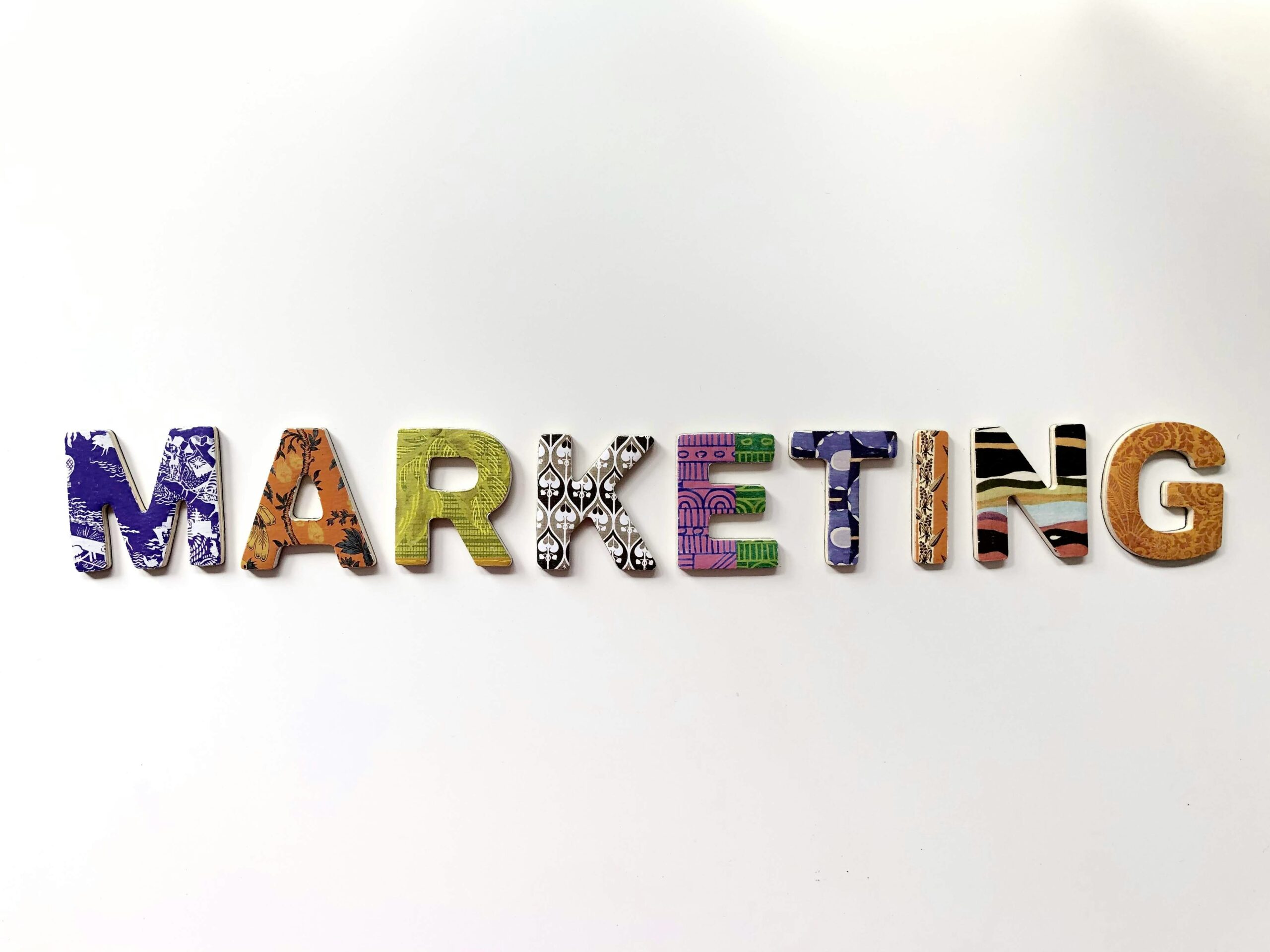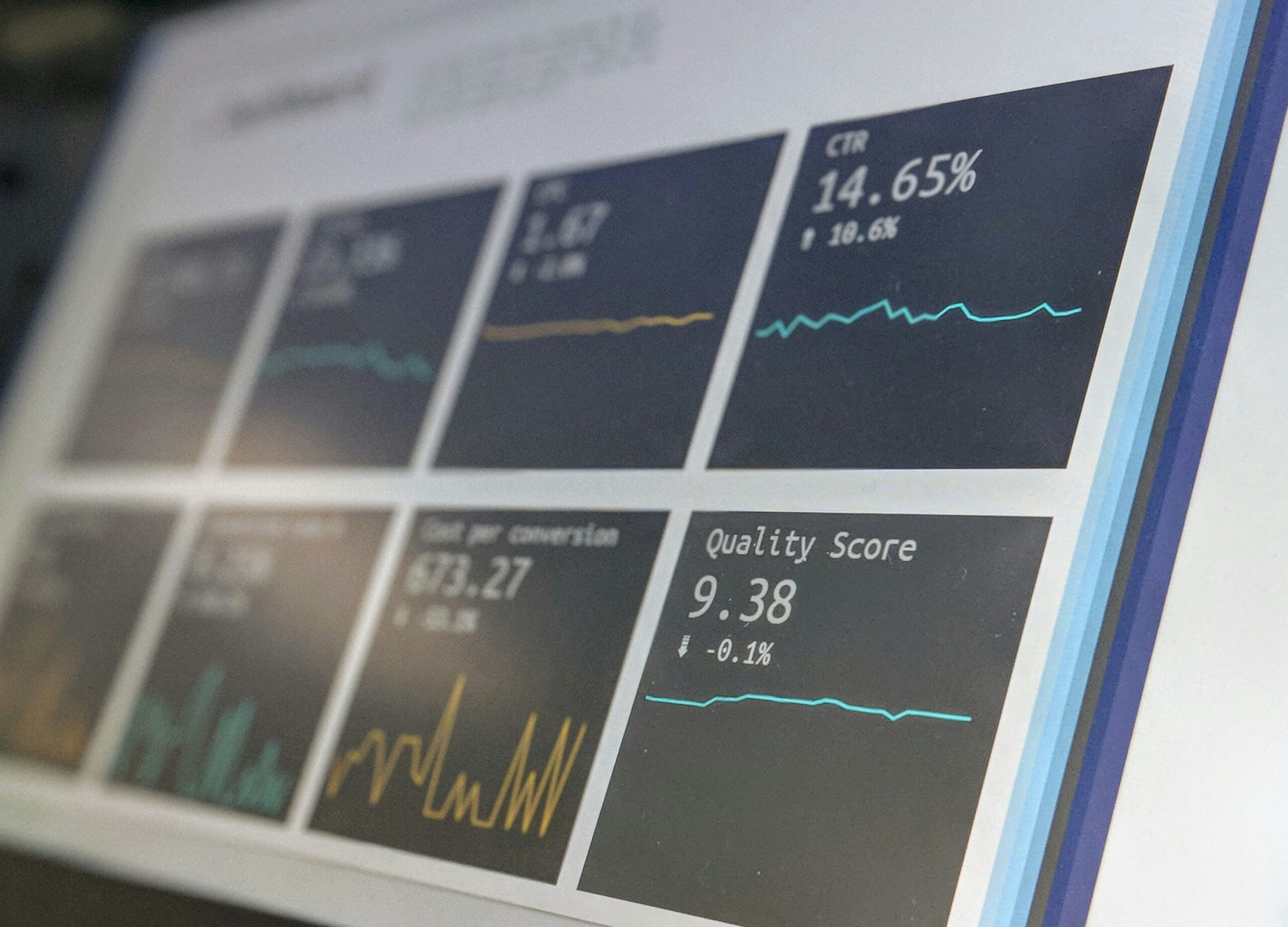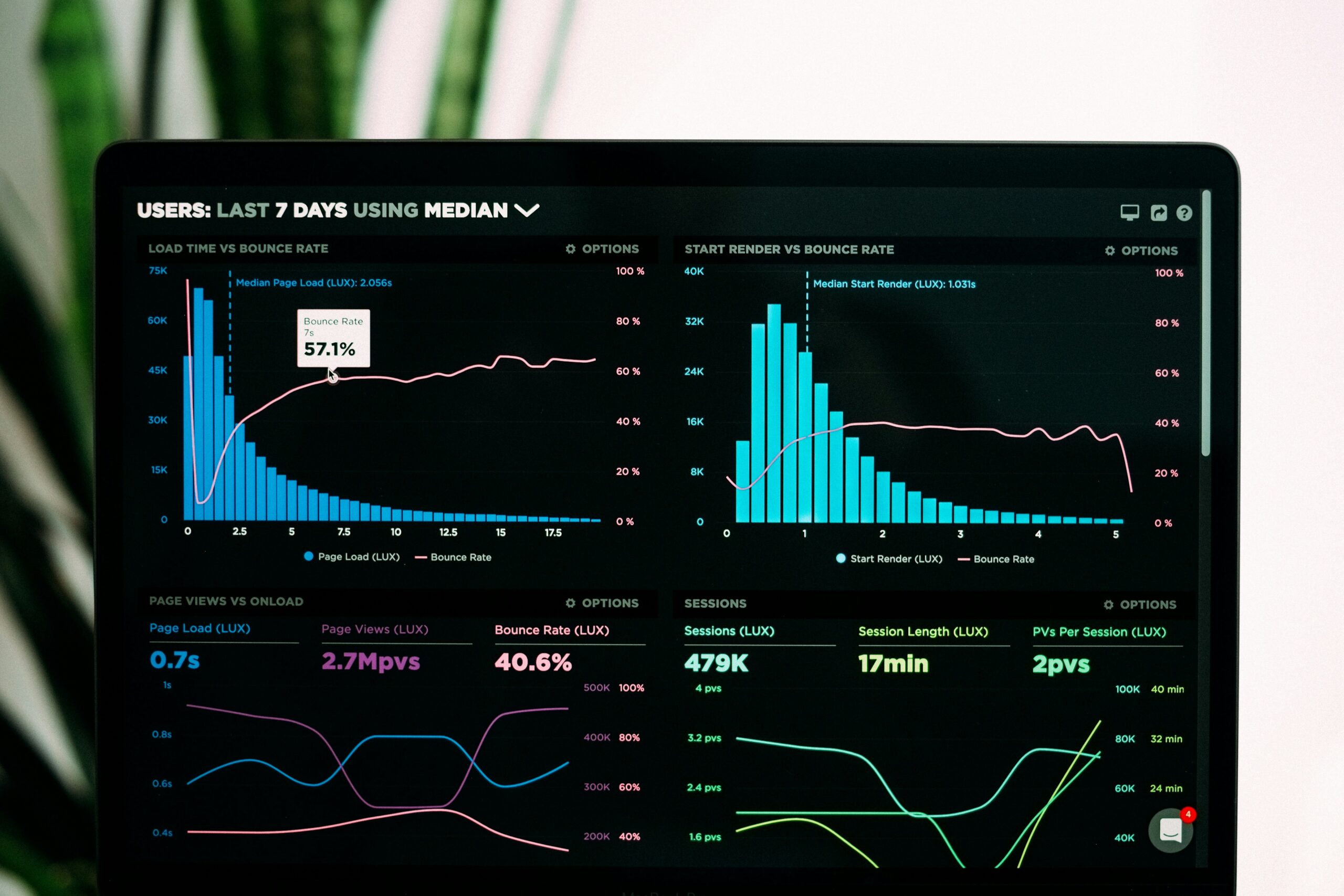
The fusion of artificial intelligence with marketing platforms is transforming promotional campaigns into finely tuned engines poised to surpass traditional strategies in efficiency and effectiveness.
With AI, marketers are no longer shooting arrows in the dark; they are precision-aiming their efforts, ensuring each message resonates with its intended audience.
From predicting consumer behavior to personalizing the user experience, AI equips brands with the tools to craft campaigns that engage customers and foster loyalty.
Sophisticated algorithms analyze vast mountains of data to uncover hidden patterns, automating and refining the marketing workflow and propelling businesses forward.
Keep reading to uncover the myriad ways in which AI is revolutionizing the art of connecting with consumers, optimizing promotional initiatives, and catalyzing a brand’s growth.
Key Takeaways
- AI Transforms Marketing Through Prediction and Personalization, Enhancing Consumer Engagement and Campaign Efficiency
- Ethical Considerations and Bias Mitigation Are Crucial in AI-driven Marketing to Maintain Consumer Trust and Transparency
- Real-Time Data Analysis and AI-driven Insights Allow Marketers to Make Swift and Informed Adjustments to Campaigns
- Adoption of AI in Marketing Necessitates Continuous Learning and Investment in Agile Technology Infrastructures
- Privacy and Data Protection Remain Paramount Amidst the Use of AI for Competitive Intelligence and Targeted Marketing
Understanding How AI Enhances Marketing Strategies

In the dynamic realm of digital marketing, Artificial Intelligence (AI) has emerged as a transformative force, reshaping the landscape with its advanced capabilities to analyze, predict, and personalize.
As marketing professionals seek to elevate their campaigns, the integration of AI becomes paramount for navigating the complexities of contemporary consumer interactions.
This critical suite embraces a spectrum from lead generation to sentiment analysis, tailoring user experiences while underpinning strategic choices with data-informed insights.
In upcoming discussions, we will explore the evolution of AI within the modern marketing paradigm. We’ll delve into the role AI plays, highlight the strategic advantages it brings, and provide real-world examples where the deployment of AI has significantly enhanced marketing efforts.
Identifying the Role of AI in Modern Marketing
In the continually evolving field of marketing, AI has established itself as an essential ally, particularly for tasks demanding precision and scalability. Its utility spans from analyzing intricate customer data platforms to fine-tuning user experience, enabling brands to connect with their audiences more effectively.
Marketers are leveraging AI’s potential to translate extensive customer interactions into meaningful patterns, facilitating the customization of marketing messages that resonate personally. AI’s capabilities extend to intangible aspects of the marketing mix, including sentiment analysis and reputation management, providing businesses with a sharper edge in competitive markets.
Breakdown of AI Benefits for Strategic Decision-Making
At the core of strategic marketing is the ability to predict and shape consumer behavior, an area where AI brings unprecedented advantages. Through the assimilation and intricate analysis of vast data sets, AI empowers marketing teams by generating accurate market intelligence and competitive insights, thereby facilitating sharper, more informed decision-making.
Crucially, AI-driven analysis permits an understanding of the vast interplay of variables that affect brand reputation, pricing strategies, and promotional effectiveness. Leveraging machine learning and natural language processing, marketers wield the power of AI to anticipate market demands and swiftly adapt campaigns, ensuring that every marketing channel operates at peak efficiency.
Case Studies Demonstrating AI’s Impact on Marketing
Amidst the ever-changing landscape of digital trends, Heinz made a savvy move by leveraging the power of data science, bringing a remarkable revitalization to its ketchup marketing campaign. Through the use of predictive analytics, the brand identified subtle preference patterns, allowing them to create targeted promotions that sparked a passionate increase in consumer loyalty and sales.
In the cosmetics industry, a leading brand underwent an influencer marketing transformation by turning to AI. Utilizing sentiment analysis, they identified the most impactful voices. This strategic use of AI-driven insights led to the development of a strong, authentic, and highly engaged community around the brand, enhancing its reputation and driving significant market growth.
| Brand | Industry | AI Application | Outcome |
|---|---|---|---|
| Heinz | Food & Beverage | Predictive Analytics | Increase in sales and customer loyalty |
| Cosmetics Brand | Beauty & Personal Care | Sentiment Analysis for Influencer Marketing | Enhanced brand reputation and market growth |
Setting Up AI-Driven Marketing Campaigns Effectively

Embarking on the journey to implement AI-driven marketing campaigns signifies a significant shift towards strategic innovation and enhanced engagement with target audiences.
To navigate the complex process of integrating AI technologies into marketing efforts, marketers need a roadmap that ensures the smooth incorporation of AI tools and adept handling of potential challenges.
This strategic approach involves coordinating steps to seamlessly integrate AI into existing workflows, following best practices to maximize the potential of AI in campaign management, and implementing tactical measures to overcome typical challenges encountered during AI adoption.
Mastering these aspects is crucial for marketing professionals to fully harness the potential of AI, leading to more informed, data-driven decisions and ultimately, more compelling and successful marketing initiatives.
Steps to Integrate AI Technologies Into Marketing Efforts
The initial step in integrating AI technologies into marketing efforts is the selection of tools that align with the organization’s specific needs. Businesses must focus on solutions offering capabilities such as natural language generation, computer vision, and intelligent automation—tools that enhance content marketing, media management, and customer experience.
Once the appropriate AI tools are identified, the next move involves crafting a marketing plan that incorporates these technologies across various marketing channels and campaigns. This integration should be strategic, aiming to boost personalization, optimize customer engagement, and streamline lead generation workflows:
| Marketing Channel | AI Technology Applied | Expected Outcome |
|---|---|---|
| Email Marketing | Automated Email Personalization | Increased Open Rates and Conversion |
| Social Media Advertising | Targeted Advertising Algorithms | Enhanced User Engagement and ROI |
| Customer Support | Chatbots and Sentiment Analysis | Improved Response Time and Satisfaction |
Best Practices for Deploying AI Tools for Campaign Management
For marketing managers to maximize the potential of AI in campaign management, it is imperative to establish a robust framework for data collection and analysis. This structure supports the intelligent algorithms that inform dynamic pricing, automated content creation, and targeted advertising, all driven by a comprehensive understanding of consumer preferences and behavior patterns.
Executing AI algorithms successfully for campaign management involves not only the technology itself but also a clear set of ethical guidelines. Marketing teams must remain vigilant, actively seeking to mitigate bias in AI systems to ensure transparency and foster consumer trust:
- Build a solid data foundation with quality, diverse datasets to train AI algorithms.
- Incorporate checks and balances to address and prevent AI bias, protecting brand reputation and consumer relationships.
- Regularly update and refine AI models to adapt to market changes and maintain relevance.
Overcoming Common Roadblocks in AI Adoption for Marketing
One hurdle in mainstreaming AI within marketing frameworks is the lack of expertise. Stakeholders, from small business owners to chief marketing officers, often grapple with the intricacies of AI deployment, necessitating targeted education and training to cultivate a deep-seated familiarity with AI tools and their potential within the marketing domain.
Another frequent challenge is the apprehension towards the initial investment and resource allocation AI adoption demands. Convincing decision-makers within the organization requires a clear demonstration of AI’s potential return on investment. This entails showcasing tangible benefits such as increased efficiency in media buying, precision in audience targeting, and an uplift in customer engagement metrics as a result of leveraging intelligent AI-driven insights.
Personalizing Customer Experiences With AI

At the intersection of technology and creativity, the art of marketing has discovered a powerful ally in Artificial Intelligence, significantly enhancing the ability to create deeply personalized and resonant customer experiences.
Using AI’s analytical capabilities, marketers can carefully tailor messages that directly address individual preferences, provide dynamic content that adjusts to real-time interactions, and explore the intricate details of consumer behaviors.
This nuanced approach, driven by AI, goes beyond traditional marketing by offering relevance and value at every interaction, fostering a lasting connection between the brand and the consumer.
Techniques for Using AI to Tailor Marketing Messages
By leveraging machine learning and natural language processing, AI algorithms can dissect consumer data, decipher language nuances, and serve content that aligns precisely with customer preferences, making each marketing message more relevant and impactful.
Leveraging intelligent automation for crafting bespoke campaigns, marketers can now dynamically adjust messaging across a plethora of platforms. Utilizing consumer behavior and interaction data, AI refines and reforms communication strategies in real-time, ensuring that every brand engagement is an extraordinary encounter for the customer:
- Dynamically generated emails offer product recommendations and deals tailored to individual consumer patterns.
- Social media posts are crafted and timed based on predictive models to maximize consumer attention and interaction.
- Chatbot conversations can evolve, reflecting the customer’s tone and history to foster a deeper, more personal connection.
Implementing AI for Dynamic Content Delivery
Incorporating AI into the marketing mix enables brands to master the art of dynamic content delivery, crafting interactions that are both timely and relevant. AI systems analyze real-time data, allowing content to be adjusted spontaneously as consumer engagement unfolds: this means messages are fine-tuned at the moment of encounter to heighten resonance and drive actionable results.
Enabling dynamic content delivery through AI allows for a seamless user experience that dynamically shifts with consumer needs and context. Innovative technologies like natural language generation and adaptive web platforms empower marketers to present consumers with content that evolves in synchrony with their journey, bolstering both engagement outcomes and content efficacy.
| AI Technology | Marketing Application | Impact on Content Delivery |
|---|---|---|
| Natural Language Generation | Email Campaigns | Creation of customized emails responding to user behavior |
| Adaptive Web Platforms | Real-time Website Personalization | Web content that dynamically adapts to user actions |
Tracking and Analyzing Customer Behavior With AI
With AI’s advanced algorithms, marketers are now able to track and interpret complex consumer behavior with unprecedented accuracy. This detailed analysis yields rich insights, guiding the adaptation of marketing strategies in real time to align with evolving consumer patterns and preferences.
Refining the art of customer behavior analysis, AI tools harness learning algorithms to continuously improve the understanding of customer interactions. These insights afford businesses the agility to pivot swiftly, tailoring their marketing efforts to match the rhythm of consumer demands and expectations.
Enhancing Data Analysis With AI for Deeper Insights

In today’s data-driven marketing environment, the aptitude to swiftly process and analyze information sets businesses apart.
Harnessing AI’s computational prowess enables the translation of complex, large datasets into refined, actionable marketing strategies that propel campaigns forward.
Marketers leverage sophisticated AI tools for competitive intelligence and agile responsiveness to market trends, ensuring that every strategic move is substantiated by deep, data-derived insights.
This precision in understanding and application forms the bedrock of successful, AI-enhanced marketing endeavors in an era where the currency of data reigns supreme.
Utilizing AI to Process Large Datasets Efficiently
Enterprises embrace technologies to swiftly uncover trends, segment audiences, and achieve a holistic view of their marketing campaigns.
AI’s advanced algorithms excel in distilling the essence of extensive datasets, equipping marketers with the ability to execute data-driven initiatives quickly. This swift processing empowers strategies backed by real-time insights, facilitating adjustments that keep campaigns aligned with the dynamic interests of the consumer base.
Transforming Raw Data Into Actionable Marketing Strategies
The transformative capacity of AI in mining vast troves of raw data is catalyzing a revolutionary shift toward crafting decisive marketing strategies. These strategies are grounded in granular, substantiated insights that only advanced data analysis tools can provide, effectively translating complex information into tailored, consumer-centric campaigns.
Marketers empowered by AI technologies stand at the forefront of innovation, deftly turning the tide of data overflow into actionable intelligence. By discerning patterns, preferences, and propensities within the data, businesses can construct marketing initiatives that are not only responsive but also anticipatory of future consumer behaviors:
| Data Point | AI Analysis | Transformative Insight | Resulting Strategy |
|---|---|---|---|
| Consumer Purchase History | Pattern Recognition | Product Affinity Segmentation | Personalized Recommendation Systems |
| Social Media Engagement Metrics | Trend Analysis | Emerging Consumer Interests | Targeted Content Creation |
Utilizing AI to sift through the digital noise enables the clear identification of market segments and opportunities, streamlining the route from raw metrics to tactical approaches. This process, imbued with AI precision, positions brands to capitalize on the nuances of consumer engagement, driving both relevance and return on marketing investments.
Leveraging AI for Competitive Intelligence and Market Trends
AI’s data analysis now serves as a cornerstone for competitive intelligence, armoring businesses with the insights needed to identify and react to market dynamics nimbly. Through the use of AI, organizations decode intricate market patterns, gaining a vital edge over the competition by understanding the positioning, offerings, and customer perceptions of rival entities.
Profiting from AI’s capacity for real-time trend analysis, marketers are empowered to pinpoint emerging shifts in consumer interests and industry standards, positioning their brands to respond with agility. This tech-empowered foresight opens avenues for proactive strategy refinement, ensuring marketing campaigns remain relevant amidst the fast-paced fluctuation of market trends.
Streamlining Marketing Operations With AI Automation

In an age where precision and rapidity are inseparable from marketing success, embracing Artificial Intelligence (AI) for automation signifies a quantum leap in achieving operational excellence.
From multifaceted tools that mechanize routine marketing processes to the profound impact of AI on enhancing productivity and operational efficiency, the strategic infusion of automation technologies is revolutionizing the marketing field.
Organizations that harness these innovations are writing their own success stories, fortifying their market positions, and delivering results that not only impress but endure.
Tools That Enable Marketing Process Automation
In the vast landscape of marketing automation, a myriad of intelligent tools is revolutionizing the efficiency and effectiveness of campaigns. These systems utilize algorithms to automate tasks such as email marketing, content distribution, customer segmentation, and targeted advertising, allowing for a seamless and sophisticated interaction with the audience.
Investments in marketing process automation platforms, such as Optimove, or advanced services from Amazon Web Services, are proving to be game-changers for brands. By implementing these AI-powered solutions, marketing teams can coordinate large-scale campaigns, handle intricate customer data with finesse, and personalize interactions across various digital touchpoints.
| AI Marketing Tool | Function | Impact on Operations |
|---|---|---|
| Optimove | Customer Data Orchestration | Refined Segmentation and Tailored Messaging |
| Amazon Web Services | Cloud-based Automation | Enhanced Scalability and Robust Analytics |
Impact of AI on Productivity and Operational Efficiency
Artificial Intelligence (AI) has brought about a significant change in operational efficiency, allowing marketing teams to replace manual and repetitive tasks with automated processes driven by accuracy. This transformation not only accelerates productivity to unprecedented speeds but also eradicates the potential for human error, ensuring a streamlined and high-velocity marketing pipeline.
Automated real-time bidding in media buying optimizes advertising expenditures, continually adjusting to market conditions to ensure the best price for ad space.
- Intelligent email marketing platforms automate list segmentation and optimize send times, heightening customer engagement and response rates.
- Conversational AI in the form of chatbots and virtual assistants provides immediate, round-the-clock customer support, enhancing service quality and freeing human resources for more complex inquiries.
The utilization of AI in enhancing operational efficiency is not just about doing more with less; it’s about redefining the scope of what’s possible in marketing execution. By deploying AI-driven tools, professionals are now unlocking new levels of productivity, reinvigorating their marketing strategies with efficient, algorithm-enhanced prowess that scales in alignment with business ambitions.
Real-World Examples of Automated Marketing Success Stories
JP Morgan Chase, a titan in financial services, has reaped the rewards of marketing automation by implementing AI-driven systems to personalize their client communication. This adoption of intelligent technology has produced a significant uptick in engagement rates, setting a new standard for personalized customer interactions within the banking industry.
A leading retail brand, in its quest for competitive advantage, turned to dynamic pricing algorithms, a marvel of AI automation, to optimize its sales strategy. The result was a seamless adjustment of prices in real-time, responding to changes in demand and competition, which led to an enhanced bottom line and a more responsive customer service experience.
Measuring and Optimizing Campaign Performance With AI

In an arena where immediacy and adaptability are not just desired but required, AI stands as an indispensable tool in the marketer’s arsenal.
The measured integration of AI algorithms for real-time campaign tracking bestows marketers with an eagle’s eye view of campaign performance, enabling nimble adjustments and strategic pivots that keep pace with the ever-shifting marketing landscape.
As businesses invest in AI to refine their marketing efforts, techniques that leverage artificial intelligence to revise strategies become fundamental, ensuring each campaign remains at the vanguard of effectiveness.
Establishing success metrics tailored to AI-powered marketing initiatives is essential to this quest, providing clarity on performance and signposting the path to optimization and success.
AI Algorithms for Real-Time Campaign Tracking
Utilizing the precision of AI algorithms for real-time campaign tracking, marketing departments can now grasp campaign dynamics as they unfold. This immediate insight into performance metrics enables marketers to distill the efficacy of each tactic, empowering timely and decisive action.
The implementation of AI for tracking encompasses diverse marketing channels and touchpoints, offering a granular perspective on engagement, conversion, and customer journeys. Marketers exploit these real-time insights, optimizing campaign elements to resonate more potently with their target audience and bolster return on investment.
| Marketing Channel | Performance Metric | AI-Driven Insight | Action Taken |
|---|---|---|---|
| Email Marketing | Open Rates | Best Time to Send | Schedule Optimization |
| Social Media | Engagement Rates | Content Preference Analysis | Content Strategy Adjustment |
| Online Advertising | Click-Through Rates | Audience Response Patterns | Ad Creative Refinement |
Techniques for Using AI to Adjust Strategies on the Fly
In the arena of marketing optimization, AI technology provides the agility to recalibrate marketing strategies in response to live data streams and outcomes. Actionable intelligence gleaned from AI systems informs marketers on the potency of their tactics, allowing for real-time strategy modification and A/B testing of campaign elements to refine their effectiveness.
Continuous feedback cycles, a hallmark of AI-enabled marketing ecosystems, pave the way for campaigns to evolve with consumer responses. Algorithms analyze behavioral data and engagement metrics, guiding marketers to iteratively refine their approach, aligning with consumer preferences and behavior shifts:
- Real-time data analysis triggers strategy adjustments based on immediate feedback.
- Adaptations in messaging or channel focus become swift and data-backed.
- Marketing teams respond to campaign analytics with agility, perpetuating cycles of refinement and reinforcement across marketing initiatives.
Mastery of AI tools yields a competitive thrust, arming marketers with the capacity to pivot strategies without delay, optimizing campaigns to actualize peak performance benchmarks. This adaptive approach, governed by AI, embodies the synthesis of data insights and strategic flexibility that defines successful modern marketing.
Success Metrics for AI-powered Marketing Initiatives
Defining success metrics for AI-powered marketing initiatives necessitates an appreciation for variables beyond traditional analytics. Metrics tailored to AI applications, such as the precision of predictive targeting and the efficiency of automated workstreams, offer profound insights into campaign impact: they gauge the cognitive stride of AI as it refines marketing processes and customer interactions.
Accurate measurement of AI’s contribution to marketing success pivots on the caliber of data and the sophistication of the analytics software. When these elements converge, marketers access clear indicators of performance, such as enhanced customer satisfaction rates and improvements in engagement and retention statistics, spotlighting the efficacy of AI-enabled strategies.
- Enhancement in predictive targeting accuracy and lead quality.
- Streamlining of automated marketing workstreams for better resource utilization.
- Uplift in customer satisfaction as reflective of improved user experiences.
- A boost in engagement rates indicates a stronger resonance of content and ads.
- Increased retention, signaling that AI-customized approaches secure loyalty.
Exploring the Future of AI in Marketing Innovations

The marketing landscape undergoes a constant transformation with the emergence of AI, opening up new vistas for brand growth and customer engagement. As professionals look towards the horizon, they anticipate shifts in trends guided by AI’s innovative capabilities.
Staying informed about next-generation AI marketing technologies becomes crucial, as does managing the delicate balance between utilizing data and respecting customer privacy. In this rapidly evolving future, ethical considerations in AI usage demand attention, promising to be as influential in shaping marketing strategies as the technologies themselves.
Predicting Upcoming Trends in AI for Marketing
Deep learning, with its proficiency in decoding both behavioral patterns and the emotional motivations behind choices, is set to redefine how brands understand their audiences. Predicting consumer needs before they arise is poised to become a standard in forward-thinking strategies, thanks to the increasingly nuanced and human-like reasoning of AI’s predictive capabilities.
Simultaneously, advancements in AI are expected to enhance the precision of voice search optimization and conversational marketing. This aligns with the evolving preference for voice-activated interactions in user experiences. Marketers are likely to embrace a synergy between AI-infused Customer Relationship Management (CRM) systems and natural language processing, creating an environment that predicts, understands, and engages with consumers in an intuitive and personalized manner.
Preparing for Next-Generation AI Marketing Technologies
Marketers must educate themselves on the latest AI technologies to preempt obsolescence and ensure relevancy in a landscape that thrives on innovation. An adept familiarity with emerging tools, spanning from AI-analyzed behavioral data to sophisticated sentiment analysis, stands as the lynchpin for future-proofing marketing strategies.
Investment in agile and scalable AI infrastructures, such as those built upon the robust frameworks of services like Amazon Web Services, equips marketers to deftly incorporate cutting-edge technologies into their campaigns. This proactive stance ensures that marketing teams are not just up-to-date but are setting the trend, harnessing next-generation AI to deliver compelling, precision-targeted marketing narratives.
Ethical Considerations and Customer Privacy in AI Usage
In the realm of AI-driven marketing, ethical considerations regarding customer privacy are paramount. Compliance with regulations and the establishment of consumer trust requires a dedicated commitment to data protection and transparent privacy policies.
Amid the pursuit of a competitive edge through AI, organizations must prioritize safeguarding consumer information, emphasizing respect for privacy as a fundamental aspect of ethical AI usage. This approach fosters lasting goodwill between brands and their clientele.
Conclusion
In conclusion, integrating Artificial Intelligence into marketing strategies is pivotal for contemporary campaign success.
AI enhances the precision and scalability of operations, enabling data-rich insights and personalization critical for engaging modern consumers.
By transforming mountains of data into actionable strategies, AI provides marketers with an eagle-eyed view of campaign performance, allowing for real-time adjustments that keep strategies agile and effective.
From predictive analytics to process automation, AI equips marketing teams with tools for superior targeting, dynamic content delivery, and increased operational efficiency.
Additionally, AI-driven campaigns must be grounded in the ethical use of data, ensuring that with the power of AI comes a commitment to respecting customer privacy.
As marketing continues to evolve, staying ahead of AI trends will be essential for marketers to craft successful, data-driven campaigns that resonate with customers and outpace the competition.

Comments